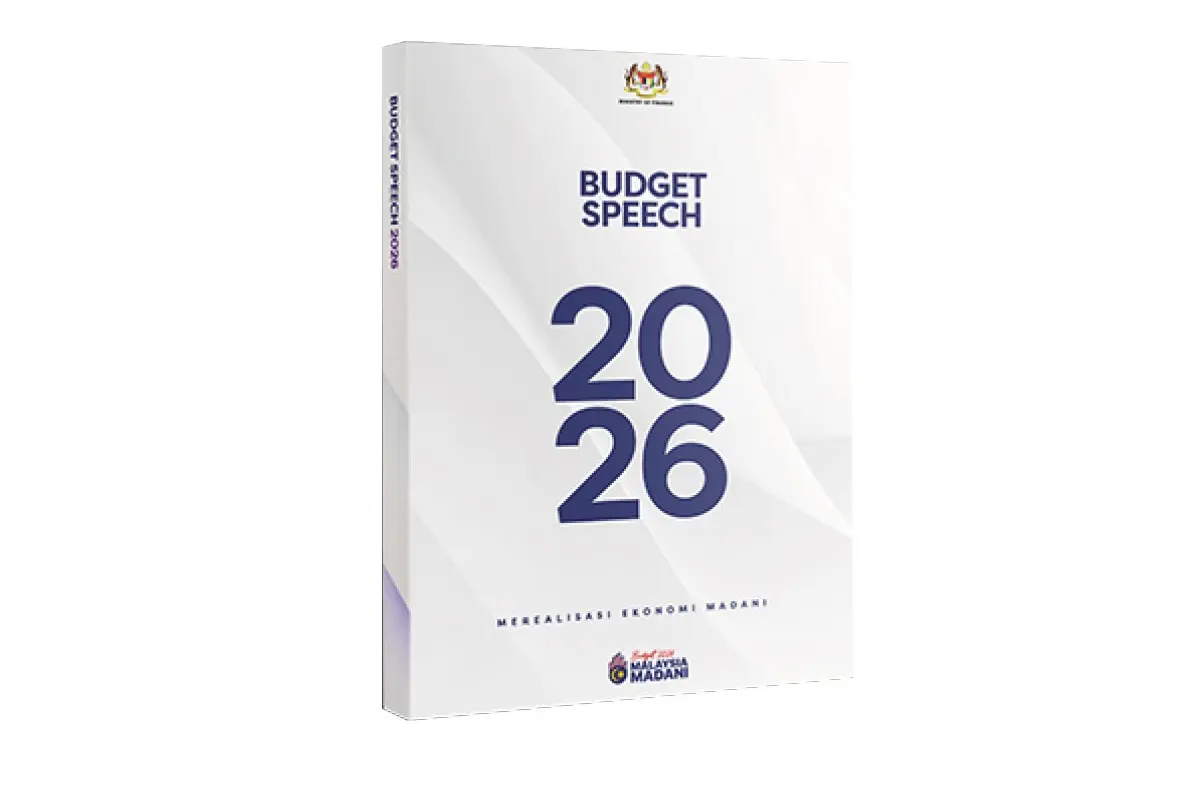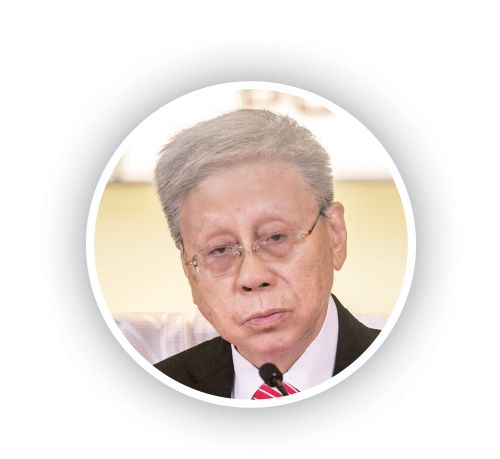The Edge
23 October 2025
Cover Story - Budget 2026: Industry leaders’ take on Budget 2026

This article first appeared in The Edge Malaysia Weekly on October 13, 2025 - October 19, 2025
Sim Kwang Gek
Tax and Legal Leader, Deloitte Malaysia
The scope of some tax reliefs has been widened, such as the tax relief of RM3,000 for life insurance premiums to include payment of the same for children, and the tax relief of RM3,000 on childcare to be expanded to include children up to 12 years of age. These measures should provide some relief to individual taxpayers, but increasing the quantum of these tax reliefs would be more meaningful as rising costs persist.
Farah Rosley
Malaysia Managing Tax Partner, Ernst & Young Tax Consultants Sdn Bhd
Consistent with previous Madani budgets, Budget 2026 focuses on laying the foundation for a more competitive, inclusive and sustainable Malaysia. Beyond targeted tax reforms, the government is advancing a broader fiscal strategy that leverages digitalisation, transformation and enhanced governance to strengthen public finance and service delivery.
This reflects a commitment to inclusive, technology-driven governance and marks a decisive move away from traditional fiscal management towards progressive and responsive policymaking, where resilience is built not by raising rates, but by raising standards.
Soh Lian Seng
Head of Tax, KPMG Malaysia
Budget 2026 is a budget that raises the floor, so no Malaysian is left behind. It signals a shift in Malaysia’s fiscal philosophy: from broad-based stimulus to targeted empowerment, from reactive subsidies to proactive inclusion, and from short-term relief to long-term resilience.
The push for digitalisation — particularly in artificial intelligence — and green energy continues to intensify as Budget 2026 allocates RM1 billion to green financing, offers new tax deductions for AI and cybersecurity training for micro, small and medium enterprises (MSMEs) and extends the 100% Green Investment Tax Allowance (GITA) for companies using green technology. As the nation moves forward, responsible development will be crucial to ensure inclusivity, data security and long-standing digital trust.
Steve Chia
Tax Leader, PwC Malaysia
Financing the innovation pipeline is supported through enhanced venture capital incentives for 10 years, featuring special tax rates and dividend tax exemptions. This will help crowd in capital for start-ups and scale-ups in strategic verticals like electrical and electronics, AI, cloud and the energy transition.
To build enterprise capabilities at scale, MSMEs can claim an additional 50% tax deduction on recognised AI and cybersecurity training under MyMahir National AI Council for Industry (MyMahir-NAICI) — directly supporting the skills base required for digitalisation and automation.
Mak Joon Nien
CEO, Standard Chartered Bank Malaysia
The RM81 billion in development spending, a slight increase from 2025, demonstrates that the government is investing in areas that will define Malaysia’s future competitiveness. The emphasis on energy transition and regional grid interconnectivity to progress towards the Asean Power Grid signals a future powered by sustainability and collaboration.
The government’s allocation of RM5.9 billion for research, development, commercialisation and innovation (RDCI), alongside the RM53 million Malaysia Digital Acceleration Grant to accelerate blockchain adoption, reflects a strong commitment to building a future-ready economy.
Malaysia’s move to mobilise state-owned enterprises or government-linked investment companies (GLICs) to help drive public spending by over RM50 billion is a brilliant move to reduce direct outlay. The country’s GLICs will raise domestic investments under the GEAR-uP initiative to RM30 billion for the energy transition, food security and digital economy industries. The additional financial firepower is on top of the government’s planned direct expenditure totalling RM419.2 billion planned for next year.
Tan Sri Tay Ah Lek
Managing Director and CEO, Public Bank Bhd
The government’s resolve in balancing pressing issues like living costs and uplifting livelihoods with the need to empower businesses and improve basic public infrastructure is highly commendable.
Savings from successful subsidy reforms have accorded the government some measure of fiscal flexibility, part of which has been reallocated to those in need. This is positive for consumer spending and domestic demand, which could be further helped by a possible increase in minimum wages to RM1,800 by 2027. Home ownership and financing availability remains a key imperative of the government. To this end, Bank Simpanan Nasional will provide RM10 billion in low-interest loans for first-time homebuyers.
Efforts on sustainability continue to be prioritised. Among others, the government will allocate RM3 billion to the Green Technology Financing Scheme (GTFS) to encourage private investment in solar, hydrogen and bioenergy while green energy tariffs will be expanded to enable corporate buyers to procure certified renewable electricity.
Kevin Lam
Group Managing Director and CEO, Hong Leong Bank Bhd
We commend the government’s continued two-pronged approach in uplifting revenue and rationalising expenditure, the latest via the phased introduction of Medium-Term Revenue Strategy and Expenditure Optimisation Measures, with the ultimate aim of broadening the revenue base and strengthening fiscal sustainability. Revenue-enhancing measures for 2026 include the increase in the sales tax rate from 8% to 10%, expansion in the service tax scope and improved tax compliance through e-invoicing. Meanwhile, savings from RON95 and diesel subsidy retargeting, adjustment in electricity and water tariffs, as well as the removal of egg subsidies, are all expected to help with the government’s commitment to fiscal sustainability.
The GEAR-uP programme will also provide a good platform for government-linked companies (GLCs) and GLICs to drive domestic direct investment, with RM120 billion targeted DDI over 2024-2028. The implementation of new and ongoing infrastructure projects and realisation of various approved investments will continue to underpin expansion in private investment and create more job opportunities.
Datuk Wan Razly Abdullah
President and Group CEO, Affin Group
The group acknowledges the government’s emphasis and effort into areas of investment and trade initiatives to accelerate the country’s industrial framework by attracting quality investments through streamlining approval processes, further efficiency in bureaucratic processes, and realigning incentives focusing on value-add and technological intensity of targeted industries, which will support innovation while adapting digitalisation, leading to economic growth and productivity. This will complement existing initiatives by the government to promote trade as well as deepen Asean economic integration to position Malaysia as a regional hub for intra-regional trade and renewable energy trade within Southeast Asia.
As SMEs continue to be the backbone of Malaysia’s economy, we commend the government’s efforts to further drive the growth of MSMEs and SMEs through targeted loan and financing facilities. These measures are vital to fostering innovation, digital adoption and resilience among small businesses.
Novan Amirudin
Group CEO, CIMB Group Holdings Bhd
Amid fierce global competition, we laud the government’s bold move in championing a high-value economy with the introduction of the Asean Business Entity to support regional expansion of Malaysian companies. We also welcome the continued focus on the Johor-Singapore Special Economic Zone (JS-SEZ), a strategic gateway that enhances the country’s regional connectivity and competitiveness.
With facilitation from the Iskandar Malaysia Facilitation Centre, supported by the Johor Super Lane and Single-Family Office Incentive Scheme, this effort will continue attracting high-quality investments and talent.
The government’s commitment to sustainability and climate transition is timely and commendable. The initial roll-out of a carbon tax, aligned with the National Carbon Market Policy and National Climate Change Bill, marks an important step forward.
Ng Wei Wei
CEO, UOB Malaysia
We welcome targeted incentives for sectors such as semiconductors, advanced technology, pharmaceuticals and green innovation. These will strengthen supply chains, create high-income jobs and attract quality investments. Strategic economic corridors like the Northern Corridor, Selangor’s connectivity and infrastructure, the JS-SEZ and Sarawak’s renewable energy hub are key to unlocking regional growth.
Fiscal reforms and the projected narrowing of the deficit to 3.5% of GDP in 2026 reflect sound stewardship. Measures such as carbon pricing, green energy tariffs, and support for exporters through the carbon border adjustment readiness fund are positive steps towards a sustainable energy transition.
We also applaud efforts to strengthen the semiconductor ecosystem through joint ventures, co-investments by GLICs, incubator programmes and targeted financing. These initiatives will deepen Malaysia’s role in the global semiconductor value chain.
Support for SMEs remains vital, with RM50 billion allocated for financing, guarantees and programmes for digitalisation and green investment.
Datuk Mohd Rashid Mohamad
Group Managing Director and CEO, RHB Banking Group
Budget 2026 is a progressive and inclusive fiscal framework that reflects the government’s commitment to sustainable growth, economic resilience and social equity. The allocation of RM419.2 billion — with RM338.2 billion for operational and RM81 billion for development expenditure — and a targeted fiscal deficit of 3.5% of GDP demonstrates a balanced approach to fiscal consolidation and nation-building under the 13th Malaysia Plan.
We also welcome the government’s continued support for MSMEs, which are the backbone of Malaysia’s economy. Through financing guarantees, entrepreneurship incentives and digitalisation programmes, the budget enables smaller enterprises to scale and strengthen resilience. This is further reinforced by the increase in government guarantees under the Skim Jaminan Kredit Perumahan (SJKP) and Syarikat Jaminan Pembiayaan Perniagaan (SJPP) for home financing and business financing.
Jamie Ling
Group CEO, Ambank Group
Over the past three budget cycles, we have seen economic stability and policy certainty, which have benefited the economic sectors and increased investor confidence. While policy clarity has continued to build confidence, external risks remain elevated. To cushion households, we are encouraged by continued government cash handouts, alongside targeted subsidies. These automatic stabilisers will help sustain private consumption amid a challenging external environment.
Budget 2026’s emphasis on the services sector will benefit from higher digitalisation adoption through the automation tax incentive, Islamic finance expansion and tourism prospects. Meanwhile, initiatives to support high-tech exports through the New Industrial Master Plan (NIMP) Industrial Development Fund, strategic investments by Khazanah Nasional Bhd and Retirement Fund Inc (KWAP) in the semiconductor system, alongside targeted financing for high-value activities, will drive the industry towards achieving a RM1 trillion export potential by 2030.
Tan Chor Sen
CEO, OCBC Bank (M) Bhd
The budget’s emphasis on fiscal discipline, institutional reform and good governance, through initiatives such as the Fiscal Responsibility Act and the proposed Government Procurement Act, will strengthen investor confidence and lay the foundation for a more transparent and accountable financial ecosystem.
We welcome the government’s bold vision for cross-border economic leadership, particularly through initiatives like the JS-SEZ, the Asean Power Grid and the newly introduced Asean Business Entity status. These efforts not only reinforce Malaysia’s strategic role but also unlock Asean’s potential as a connected and collaborative growth region. By enhancing infrastructure, trade flows, talent mobility and energy cooperation, Malaysia is paving the way for deeper regional integration.
We are pleased to see continued support for SMEs, including RM50 billion in financing and guarantees, and targeted programmes for women and bumiputera entrepreneurs.
Datuk Nik Amlizan Mohamed
CEO, Retirement Fund Inc (KWAP)
Through our GEAR-uP initiatives via Dana Pemacu and Dana Perintis, KWAP remains committed to mobilising capital that strengthens Malaysia’s investment ecosystem and catalyses the next engines of national growth.
To this end, RM1.2 billion has been allocated under Dana Pemacu to build a vibrant domestic investment landscape, focusing on high-growth sectors such as energy transition, food security and the digital economy, all of which align with the budget’s emphasis on innovation-driven and value-creating industries.
Complementing this, the combined investment under KWAP’s Dana Perintis and Khazanah Nasional Bhd’s Jelawang Capital will increase to RM750 million from RM550 million, to accelerate Malaysia’s start-up and innovation ecosystem, nurturing enterprises that contribute to technological advancement and job creation.
At the same time, KWAP and Khazanah Nasional will jointly invest RM550 million in the semiconductor ecosystem, a strategic move to deepen collaboration between local firms and multinational corporations, strengthening Malaysia’s position as a global hub for high-value manufacturing and advanced technology.
Datuk Abdul Rahman Ahmad
President and Group CEO, Permodalan Nasional Bhd (PNB)
PNB is grateful for the continued allocation for the Celik Madani programme, aimed at enhancing financial literacy and encouraging responsible investment behaviours among young Malaysians, and the increase of the Amanah Saham Bumiputera 3 Didik (ASB 3 Didik) and Amanah Saham Malaysia (ASM) unit trust fund size by an additional five billion units each, amounting to 10 billion units.
This will enable all Malaysians to take meaningful steps towards securing their financial future and unlocking greater potential for long-term wealth creation.
The increase in fund size strengthens PNB’s commitment to financial inclusion, opening up more opportunities for the rakyat, including beginner investors in Amanah Saham Nasional Bhd, to participate in and benefit from ASNB’s investment products.
PNB is committed to playing its role in implementing the related initiatives under the budget, including greater direct domestic investments by GLICs under the GEAR-uP programme, and encouraging Malaysians to save more to secure their long-term future.
Mohammad Ashraf Md Radzi
CEO, Lembaga Tabung Angkatan Tentera (LTAT)
With a total allocation of RM470 billion, including RM30 billion from GLIC investments under Ikhtiar GEAR-uP, the budget reinforces the government’s focus on fiscal responsibility, national resilience and shared prosperity.
The increase in GLIC investments from RM25 billion to RM30 billion will further strengthen LTAT’s capacity to create long-term value through its group companies. In addition, the RM21.7 billion allocation for the Ministry of Defence demonstrates the government’s continued commitment to national security, including RM6 billion for the maintenance and acquisition of new defence assets.
The government emphasises its focus on the rakyat’s well-being through PuTERA35, Ikhtiar Madani Untuk Rakyat and the expansion of public-private partnerships in essential medicine production.
Budget 2026 reflects the government’s vision for a resilient, inclusive and forward-looking Malaysia. LTAT stands ready to support its implementation through responsible investments that strengthen defence-linked industries, uplift the welfare of armed forces personnel and drive long-term value for our contributors and the nation.
Datuk Mohammad Faiz Azmi
Chairman, Securities Commission Malaysia
Budget 2026 is a strong statement of intent for the Malaysian capital market to lay a resilient foundation for long-term national prosperity and economic competitiveness.
Our focus is dual: to raise the ceiling for market growth while simultaneously raising the floor by making our markets more inclusive.
By expanding allocations for mechanisms such as the NIMP Strategic Co-Investment Fund (CoSIF) and the Malaysia Co-Investment Fund (MyCIF), we continue to ensure that capital is directed towards future growth engines.
The introduction of the Asean Business Entity (ABE) will directly empower Malaysian companies to build scale and become regional powerhouses. The SC is proud to oversee this initiative, which is for listed companies with a strong Asean presence and mid-tier firms with regional potential.
The success of the Single-Family Office (SFO) Scheme, the expansion of MyCIF and CoSIF, and the ABE status demonstrate that Malaysia’s capital market is adapting, opening and leading in a new era of regional capital flows. The SFO Scheme stands as a powerful example of policy translating into confidence, targeting RM2 billion in assets under management by the end of 2026.
Datuk Fad’l Mohamed
CEO, Bursa Malaysia
Bursa Malaysia commends the government’s proactive yet responsible stance in strengthening economic resilience and enhancing the competitiveness of growth sectors while balancing fiscal discipline.
Budget 2026 nurtures sustainable and responsible growth, empowers citizens to embrace wealth creation and encourages diversity — all key factors to move forward as a progressive society. With investments of RM550 million from Khazanah Nasional and KWAP in Malaysia’s semiconductor ecosystem to strengthen collaborations between local businesses with multinational corporations, Bursa Malaysia is optimistic this will deepen industrial linkages and enhance Malaysia’s position in the global semiconductor value chain.
Additionally, Bursa lauds the government’s focus on technology-driven growth, particularly through the Malaysia Digital Acceleration Grant, which allocates RM53 million to accelerate adoption of emerging technologies. This complements Cradle Fund’s RM55 million for equity investment programmes and innovation workshops, which has now been expanded to the private sector.
The allocation of RM40 million via the GLICs and GLCs, along with Ekuinas’ commitment to grow and scale its investee companies, will build more competitive bumiputera businesses. The exchange looks forward to working closely with its partners and facilitating these companies through its suite of fundraising avenues and services.
Datuk Seri Khairussaleh Ramli
President and Group CEO, Malayan Banking Bhd,
Chairman of The Association of Banks in Malaysia
The unveiling of Budget 2026 comes at a key juncture for Malaysia — navigating global headwinds from trade tensions and tariff pressures, domestic cost-of-living pressures and a renewed push under the 13th Malaysia Plan. We applaud the government’s broad-based approach, striking a balance between delivering investment stimulus, growth of new economic sectors and social relief while maintaining balance fiscal discipline in which it is on track to meet the Public Finance and Fiscal Responsibility Act’s medium-term target budget deficit of 3% GDP.
The budget remains committed to the well-being of the people, particularly those in marginalised segments. The banking industry upholds the government’s drive to build a high-value Asean economy through strategic investments in the new economy; for example, semiconductors, energy transition and digital industries.
The budget also addresses the rakyat’s issues pertaining to cost of living — including medical inflation, where we welcome the expansion and extension of tax reliefs for medical insurance and takaful, as well as tackling the provisions, maintenance and quality of public infrastructure, healthcare, education and housing.
We fully support the government’s direction on cross-border economic leadership, particularly on the development of the JS-SEZ, which strengthens Johor’s position as Malaysia’s strategic gateway. As an early mover, Maybank has mobilised RM8 billion in terms of financing and investments in the JS-SEZ and helped established two Single Family Offices with 11 more in the pipeline.
With the largest banking network in Johor and partnerships with key Singapore business chambers, we are well positioned to facilitate cross-border investments. We look forward to supporting cross-border initiatives such as the Asean Power Grid and also the ABE for regional mobility of our workforce.
Datuk Amirul Feisal Wan Zahir
Managing Director, Khazanah Nasional Bhd
Khazanah continues to support the government’s strategic investment agenda in priority areas such as semiconductors, energy transition and rare earths. In semiconductors, we continue to foster collaboration between local firms and multinational partners. Together with other GLICs, these efforts reflect a collective push to strengthen domestic investments under GEAR-uP.
The empowerment of Malaysia Airports Holdings Bhd will boost air connectivity and attract investment, further strengthening the nation’s aviation and tourism sectors ahead of Visit Malaysia Year 2026.
We welcome ongoing initiatives under Warisan KL, which will continue to revitalise the capital’s heritage and reimagine its role as a cultural and economic hub. Khazanah is investing RM600 million in the conservation of Carcosa Seri Negara, as well as six building blocks within the Bangunan Sultan Abdul Samad Complex in Kuala Lumpur.
Budget 2026 reflects a collective effort and commitment to fortify Malaysia’s foundations, laying the groundwork for a resilient, inclusive and future-ready nation. Khazanah remains steadfast in our commitment to collaborate with the government and our partners to translate national priorities into real progress for Malaysians.
Amar Huzaimi Md Deris
Managing Director and Group CEO, Telekom Malaysia Bhd
TM welcomes the Budget 2026 announcement and lauds the government’s continued focus on economic reform and uplifting the well-being of the rakyat. The strong emphasis on digital infrastructure and inclusivity from the expansion of Jendela 2, Points of Presence, NADI Centres and the new Sambungan Kabel Dasar Laut Madani (Salam) will further strengthen our national digital resilience.
We are encouraged by the government’s strategic intent to advance the Sovereign AI Cloud and establish an AI Transformation Centre, which embodies Malaysia’s determination to lead in a digital-first world. We align closely with this direction through TM Cloud Alpha Edge, our platform built to safeguard national data sovereignty while enabling innovation across industries.
Multimedia University, our education arm, has been recognised as part of this journey to develop future AI talent and research excellence. TM is heartened to see continued support for MSMEs, TVET and capability building, alongside the expansion of Kampung Angkat Madani and Sekolah Angkat Madani.
These initiatives remind us that true progress happens when communities are empowered, opportunities are created, and every Malaysian is able to participate meaningfully in the nation’s progress and digital journey.
(Web Source: https://theedgemalaysia.com/node/773959)




